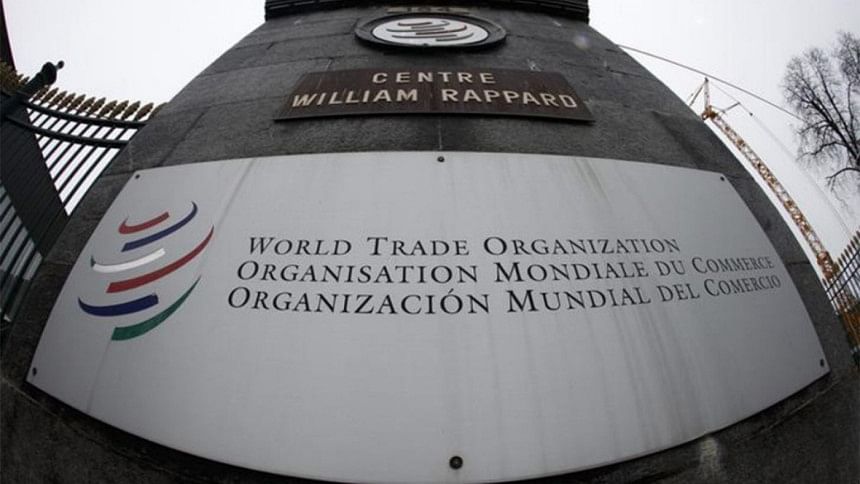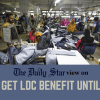WTO Ministerial Conference - Rejuvenating free trade

The Eleventh Ministerial Conference (MC11) of the World Trade Organization will be held on December 10-13 in Buenos Aires, Argentina. The meeting of this highest decision-making body of the WTO, which meets at least once every two years, is taking place at a critical moment of the free trade movement. WTO and free trade are threatened by the emergence of protectionist and anti-trade sentiments amongst many of the organisation's 164 members, and squabbling among the world's largest traders, including the USA, China, and even the generally free-trade oriented European Union. If countries lower the tariff rates against imports and refrain from imposing non-tariff barriers against trade, it benefits free trade and promotes growth.
However, in recent years since 2010, we have witnessed a slowdown in the growth of world trade, and it is predicted that in the current environment the "new normal" is a modest growth as compared with the rapid expansion of trade relations during 1990-2010. The most ominous trend seems to be that many free trade agreements of the last decade including NAFTA and TPP are now under siege.
WTO was set up in 1995 under the Marrakesh Agreement and regulates international trade in goods, services, and intellectual property between participating countries "by providing a framework for negotiating trade agreements and dispute resolution." Unfortunately, the key mission of WTO—to lower tariffs and facilitate increased global trade—suffered a major setback with the collapse of the Doha Round, whose objective was to lower trade barriers around the world, and thus facilitate increased global trade.
The last ministerial conference of WTO took place in December 2015. To stay relevant, the next conference needs to address five issues: (1) trade in non-agricultural goods, (2) trade in services; (3) e-commerce; (4) improved rules on distortions regarding state-owned enterprises (SOE), local content requirements (ROO) and export restrictions; and (5) investment. Obviously, it would be too much to expect that MC11 will address all these issues in four days, but the trade ministers and senior officials attending the conference must make a commitment to move forward with them. For developing countries, trade is their "engine of growth."
In the last few years, globalisation and trade liberalisation have been buzzwords at international forums and the media. However, some statistics have shown that decline in trade volume took a downturn in the early 1990s. According to IMF data, the global trade elasticity peaked in 1991-1995, much before the recent financial crisis, and has been declining since then. Trade Elasticity (TE) refers to the ratio of trade growth to GDP growth rates. TE was 1 during 1981-1985, meaning that trade grew at the same rate as GDP, and started to climb, reaching a level over 2.5 during 1991-2000. As mentioned, trade growth has not been robust in recent years and is hovering below 1.5 as this decade winds down.
Many factors have contributed to this slowdown; the ones that readily come to mind are protectionist measures taken by all countries since the financial crisis in 2009, and backpedalling on trade reforms. Even voters in major western countries are turning their backs on globalisation as evidenced by recent electoral results in the USA, UK, and Germany. According to a Wall Street Journal-NBC polls conducted in the US, just 31 percent of GOP respondents in December 1999 said free trade deals hurt the US. "By February 2017, when the question was posed slightly differently, a majority of GOP voters polled said free trade hurt the country."
Joseph Stiglitz, Nobel laureate in economics, attributes this resurgence in protectionism to the failure of governments to protect workers and vulnerable population who equate trade with job losses.
How can WTO help reverse the trend described above? First of all, the meeting of MC needs to address the anti-trade sentiment. Retraining of workers and employment generation must work hand in hand with lower tariffs. Member-countries must also check their impulses to look for quick fixes to correct trade deficits as the USA is doing. "Nearly all WTO members engage to one degree or another in backsliding, sometimes through the use of legal but restrictive measures (e.g. raising tariffs up to the bound rate or employing the trade-remedy laws) and sometimes imposing measures that are found to violate their WTO commitments."
The upcoming ministerial-level meeting comes at a time when trade, and the future of trade, is at a crossroads. Many in the international business community have voiced their concern, to cite an example, against "European Commission (EC) proposals to adopt new rules for taxing the digital economy within the single market, which would essentially create new tax barriers and ultimately undermine global efforts to establish a consistent international tax landscape." From mid-October 2016 to mid-May 2017, WTO members implemented 74 new trade-restrictive measures, amounting to an average of almost 11 new measures per month.
WTO needs to recognise the concerns of developing countries particularly their micro-, small- and medium-sized enterprises (MSMEs). "Despite their economic importance in developed, developing and least-developed countries, MSMEs' share of trade is disproportionately small, often because they are unaware of the potentially wider market and because they traditionally have not had the resources to navigate sometimes complex trading procedures. But new technologies are helping to pare back these obstacles and create a more level playing field for smaller companies in international trade. Helping more MSMEs to trade internationally is an important step in building a more inclusive trading system that benefits a wider array of citizens."
Recently IMF, WTO and the World Bank came out with a policy document entitled, "Making Trade an Engine of Growth for All: The Case for Trade and For Policies to Facilitate Adjustment" with a clarion call for liberalisation and better rules. The role of trade as a driver of growth is threatened, according to the report, which called for action to better communicate the benefits of open trade to a public that may have become more sceptical, especially in advanced economies.
Dr Abdullah Shibli is an economist and Senior Research Fellow at the International Sustainable Development Institute (ISDI), a think-tank based in Boston, USA.









Comments